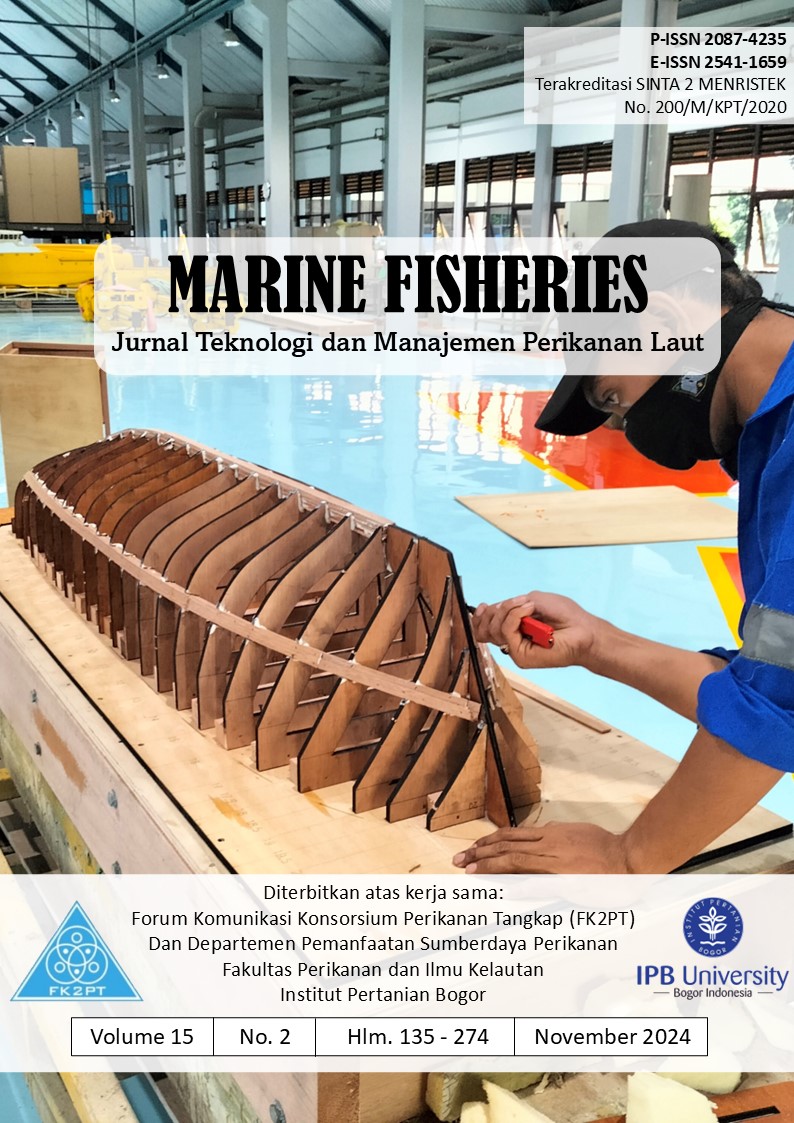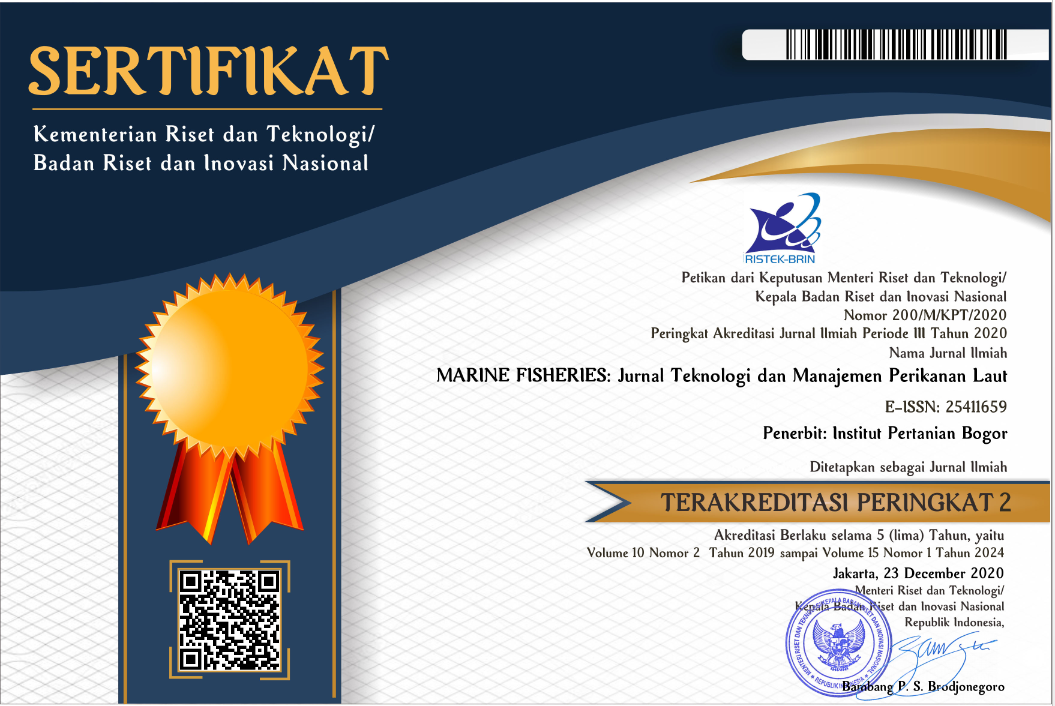TUNA FISHERIES IN NORTH SULAWESI: PORTRAIT OF FRESH TUNA DIRECT EXPORT
Abstract
The North Sulawesi Regional Government implemented a policy breakthrough to enhance the competitiveness of tuna fisheries by facilitating the direct export of fresh tuna from Manado to Japan. However, export operations have not run optimally, as the cargo quota of 20 tons per trip per week has not been achieved which threatens the continuation of the operation. This study aims to describe the current state of direct export of tuna to Japan and to identify the causes of the failure to meet the cargo quota target for direct export of fresh tuna to Japan. The data used in this study were obtained through in-depth interviews with respondents selected using purposive and accidental sampling, as well as direct observation at the research location. The data were processed qualitatively and quantitatively, and then analyzed descriptively. The results of the study revealed a reduction in the export quota from 20 tons per trip per week to 3 tons per trip per week. In 2023, the export reached the average delivery target was only met in three months: March, April, and December, with 3.35 tons, 3.04 tons, and 7.34 tons, respectively. The cause of the issue is the shortage of high-quality tuna raw materials (grade A), which results from fishermen failing to implement proper fish handling methods during fishing operations. Furthermore, the dependence on tuna supplies from PPS Bitung. The solution is to enhance the ability of fishermen according to good fish-handling standards and to diversify the supply chain of fresh tuna by sourcing from both within and outside the North Sulawesi region.
Keywords: direct export, fresh tuna, North Sulawesi
Downloads
Copyright (c) 2024 Ronald S A Posundu, Tri Wiji Nurani, Mulyono S Baskoro, Iin Solihin, Mustaruddin Mustaruddin

This work is licensed under a Creative Commons Attribution-NonCommercial 4.0 International License.
Author(s) who published in this journal agree to following terms:
- Author(s) must understand and agree that the copyright script in published owned by the Marine Fisheries Journal. The copyright includes reproducing and selling the manuscript to all parties.
- Everyone can cite every manuscript published in Marine Fisheries for educational purposes, with the author's name and the Marine Fisheries Journal on reference.









